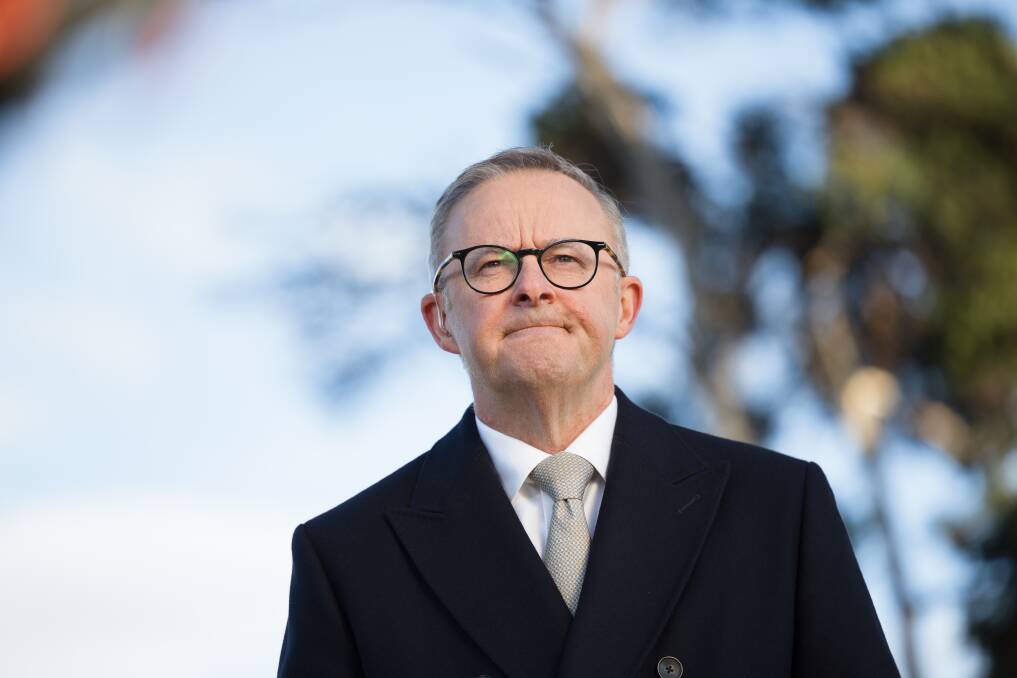Imagine you are experiencing psychological distress. You are depressed and anxious. You are struggling to work and keep up personal connections.
Subscribe now for unlimited access.
$0/
(min cost $0)
or signup to continue reading
It may be an effort to even leave your home.
You've called a crisis hotline. This helped in the short-term, but you are still struggling.
Yet when you reach out to a service provider that could offer you the sustained support you desperately need, you find yourself placed on a six-month waitlist. Six months is a very long time for someone who is in distress today.

For many Australians, the scenario doesn't take much effort to imagine. Both psychological or emotional distress and the difficulty to access services are all too real. Particularly in rural and regional areas.
In fact, almost one in five Australians experience mental ill-health each year, many of whom do not receive the care they need. The COVID-19 pandemic has only exacerbated this.
It's the stuff of regular headlines: regional media report on long wait times for psychiatrists in Victorian regions, about queues in emergency departments where people end up in crisis as a result.
This is a state-wide, and indeed a national, problem affecting all facets of mental health care.
Long wait times for mental health services have significant impacts for people seeking help with their mental health.
It means people are suffering preventable psychological distress and longer disruption to their education, work, relationships and opportunities.
Untreated symptoms will often worsen over time. Long wait times can also increase pressure on carers, families, friends, colleagues and supporters.
They also create a greater burden on the mental health and wellbeing system more generally, as when people are eventually able to access services, they are likely experiencing more complex or severe symptoms requiring more intensive treatment, care and support.
This, in turn, impacts on the workers providing the services.
Across all facets of health care, during the pandemic, we have seen a rise in workers experiencing distress, burning out and struggling to continue to work.
It's a negative feedback loop that erodes wellbeing and system effectiveness on all sides.
In Victoria, we have seen some major progress made by the state government to address this. But - as we have said here many times -- national leadership and action has, to date, been sorely lacking.
This year's federal budget designated $64.7 million to a national mental health workforce strategy.
This modest investment simply does not match the scale required to address this urgent issue.
Tellingly, the strategy itself was not released ahead of the recent election.
While the 2021-22 federal budget set a new record for mental health investment in Australia, this year's fell well short of the mark. It seemed to indicate mental health reform was no longer a "first tier" priority for the Coalition federal government.

A survey commissioned by our national peak body, Mental Health Australia, during the campaign found that a massive 82 per cent of respondents viewed a party's position on mental health and wellbeing, and the provision of related services, as important in guiding their voting decision.
It was salt in Australians' wounds after more than two years of challenges, including COVID-19, flood and bushfire events.
And now we have a new Labor federal government.
This is a real opportunity for Prime Minister Albanese and his cabinet to display the leadership and vision that was not shown by their predecessors.
Mental health is not all about clinical health, of course, so we have been pleased to see Labor's commitments across many areas that we refer to as the social determinants of health: housing, aged care, women's safety, Aboriginal and Torres Strait Islander health and wellbeing, disaster resilience, the cost of living and employment security.
All of these areas are critical to mental health. And mental health was a critical factor at the election.
A survey commissioned by our national peak body, Mental Health Australia, during the campaign found that a massive 82 per cent of respondents viewed a party's position on mental health and wellbeing, and the provision of related services, as important in guiding their voting decision.
Boosting the mental health workforce in regional areas is a huge and urgent need and will be a test of the new federal government's commitment.
Australians in distress shouldn't have to wait many months to have their mental health needs met. Action is urgently needed. Lives depend on it.

